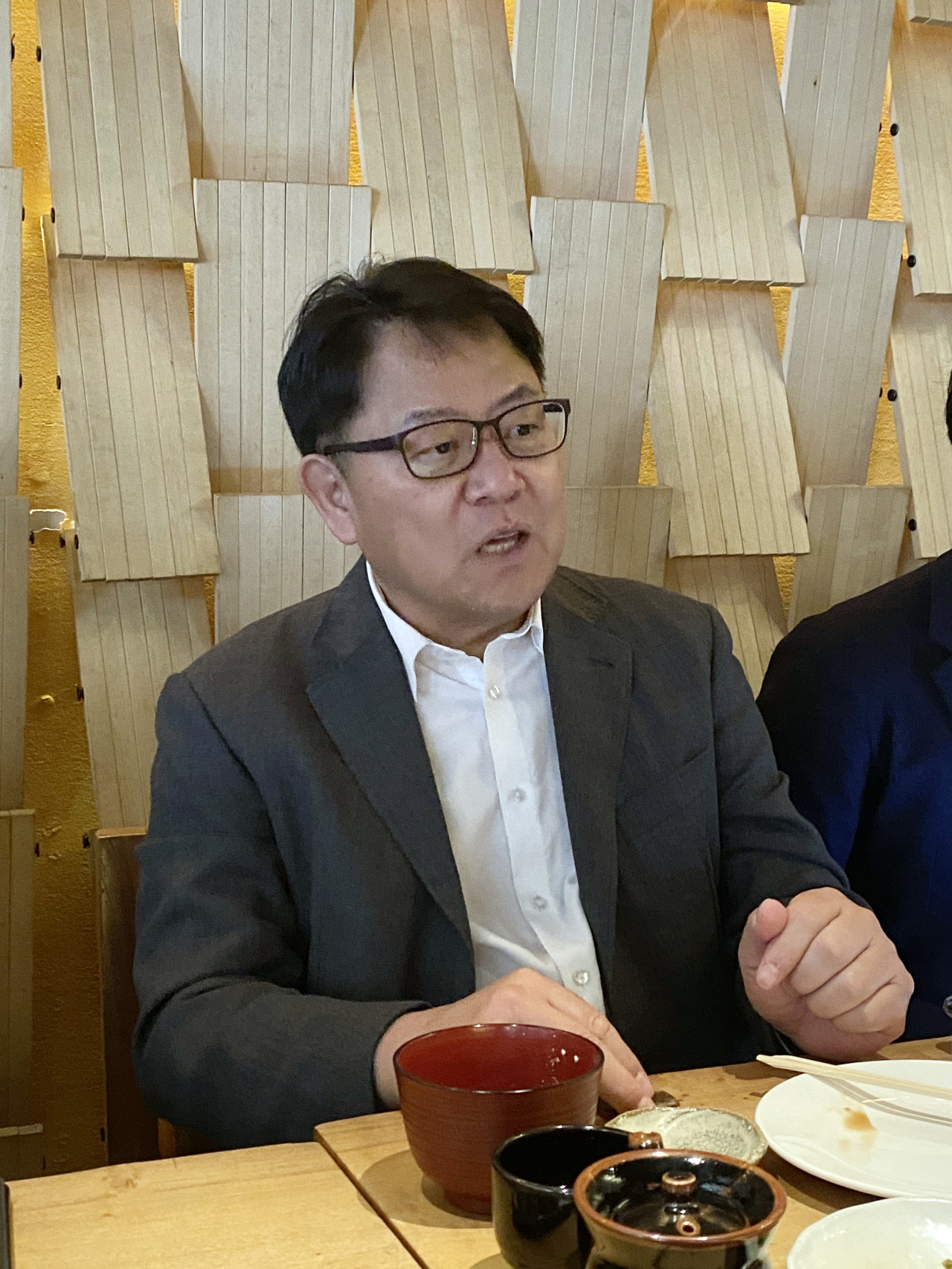SK Biopharmaceuticals CEO promises new drug every other year
By Lim Jeong-yeoPublished : Jan. 19, 2020 - 14:33
SAN FRANCISCO -- Korean central nervous system drug developer SK Biopharmaceuticals’ CEO Cho Jeong-woo vowed to acquire a novel drug approval every two years, speaking to reporters during the JP Morgan Healthcare Conference 2020 in San Francisco on Wednesday.
SK Biopharmaceuticals has so far received two approvals from US Food and Drug Administration; one for sleep disorder treatment Sunosi (solriamfetol), licensed out to Jazz Pharmaceutical and the other for partial onset epilepsy treatment Xcopri (cenovamate), which it single-handedly developed to the final stage.
SK Biopharmaceuticals has so far received two approvals from US Food and Drug Administration; one for sleep disorder treatment Sunosi (solriamfetol), licensed out to Jazz Pharmaceutical and the other for partial onset epilepsy treatment Xcopri (cenovamate), which it single-handedly developed to the final stage.

“SK Group’s novel drug development is a mid- and long-term project carried on from early 2000s. Starting with Xcopri, which launches in the US in March, we will continue to bring forth novel approvals every other year and come shoulder-to-shoulder with global pharma firms as an innovative drug developer,” Cho said.
Xcopri currently is approved for the indication of partial onset seizures, which affect 60 percent of epilepsy patients in the US.
For the indication of primary generalized tonic-clonic seizures, or whole-body seizures, a phase 3 clinical trial is ongoing to determine Xcopri’s efficacy for that indication.
SK Biopharmaceuticals has hired 110 US local sales experts to market Xcopri.
“The next potent pipeline from SK Biopharmaceuticals is carisbamate for Lennox-Gastaut syndrome, or childhood-onset epilepsy,” Cho said
At the same time, the firm is also preparing a chemical drug to treat brain tumors.
Central nervous system drugs have to be able to cross over the blood-brain-barrier. As most proteins are unable to do so due to their size, biologic drugs do not work for central nervous system problems.
“There has never been a treatment for brain tumors as conventional oncology drugs do not pass through the blood-brain-barrier. But our pipeline (drug) in development with Samsung Medical Center is able to,” Cho said.
The reason why the company is called SK Biopharmaceuticals, when it actually produces chemical drugs and not biologics, Cho explained that the names SK Pharma and SK Chemical were already taken by existing SK Group affiliates.
As for Alzheimer’s Disease treatment pipelines which have been a hot topic throughout the JP Morgan Healthcare Conference 2020, Cho said prevention may be the best way.
“There is no drug that can rewind neuro-degeneration. The current research is focused on halting the progression of Alzheimer’s, and that’s about the best we can do for now,” Cho said,
A way to prevent the onset of Alzheimer’s Disease may be artificial intelligence-powered foresight that reads through generations of health data, Cho offered. For meaningful result, it would take about 20 years of data accumulation.
Cho said he recently met with Chey Yun-jeong -- the eldest child of SK Group Chairman Chey Tae-won who has temporarily halted her job at SK Biopharmaceuticals to pursue a bioinformatics masters’ degree at Stanford -- to meet with investors and bio ventures to learn the trends of the digital health care market based on genetic profiling.
By Lim Jeong-yeo (kaylalim@heraldcorp.com)
Korea Herald correspondent








![[KH Explains] Hyundai's full hybrid edge to pay off amid slow transition to pure EVs](http://res.heraldm.com/phpwas/restmb_idxmake.php?idx=644&simg=/content/image/2024/04/18/20240418050645_0.jpg&u=20240419100350)






![[From the Scene] Monks, Buddhists hail return of remains of Buddhas](http://res.heraldm.com/phpwas/restmb_idxmake.php?idx=652&simg=/content/image/2024/04/19/20240419050617_0.jpg&u=20240419175937)

![[KH Explains] Hyundai's full hybrid edge to pay off amid slow transition to pure EVs](http://res.heraldm.com/phpwas/restmb_idxmake.php?idx=652&simg=/content/image/2024/04/18/20240418050645_0.jpg&u=20240419100350)

![[Today’s K-pop] Illit drops debut single remix](http://res.heraldm.com/phpwas/restmb_idxmake.php?idx=642&simg=/content/image/2024/04/19/20240419050612_0.jpg&u=)